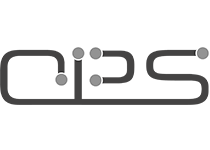Faisal Mahmood

E-Mail: faisal.mahmood(at)uni-siegen.de
Raum: US-D 116 (Ludwig-Wittgenstein-Haus, Campus Unteres Schloss)
Telefon: +49 (0) 271 / 740 2013
Sprechstunde: Nach Vereinbarung
Vita
Faisal Mahmood hat einen praktischen Hintergrund in Software-Entwicklung, Webentwicklung, Datenintelligenz und Verarbeitung natürlicher sprache. Seinen Bachelor in Informatik (B.Sc. 2017) absolvierte er an der COMSATS University in Pakistan. Sein einjähriges Bachelorprojekt basierte auf der Entwicklung eines Webportals für Cybersicherheitsteams zur Analyse und Teamverwaltung. Anschließend begann er 2017 sein Masterstudium Informatik (M.Sc.) an der Universität Paderborn. Während des Masterstudiums trat er als studentische Hilfskraft (WHK) in die Forschungsgruppe KontiKat der Universität Siegen ein und arbeitete für zwei Jahre an der Entwicklung von Webanwendungen für Business Continuity Management (BCM) und Business Impact Analysis (BIA). Faisal Mahmood schrieb seine Masterarbeit an der Universität Siegen zum Thema: „Chatbot als Tool zur Bereitstellung von Lernhilfen: eine Erkundung des Lernens in Unternehmensorganisationen“. Seit Januar 2022 ist er als wissenschaftlicher Mitarbeiter in der Gruppe Cyber-Physical Systems der Universität Siegen tätig.
Publikationen
2023
-
Weber, P., Mahmood, F., Ahmadi, M., Von Jan, V., Ludwig, T. & Wieching, R. (2023)Fridolin: participatory design and evaluation of a nutrition chatbot for older adults
IN i-com, Vol. 22, Pages: 33–51 doi:10.1515/icom-2022-0042
[BibTeX] [Abstract] [Download PDF]Abstract In recent years, emerging approaches to chatbot-guided food coaching and dietary management, while innovative and promising in nature, have often lacked long-term studies. Therefore, with this work, we pursued a participatory approach within a design case study to the co-design and development of a nutrition chatbot for elderly people. Overall, 15 participants were directly involved in the study, of which 12 participated in the initial co-design phase, seven in the first real-world evaluation study over four weeks, and three in the second evaluation study over seven weeks. We contribute to the fields of Human-Computer Interaction by showing how the long-term use of such a chatbot in the area of nutrition looks like, which design implications arise for the development of nutrition chatbots, and how a participatory design approach can be realized to design, evaluate and develop nutrition chatbots.
@article{weber_fridolin_2023, title = {Fridolin: participatory design and evaluation of a nutrition chatbot for older adults}, volume = {22}, copyright = {http://creativecommons.org/licenses/by/4.0}, issn = {2196-6826}, shorttitle = {Fridolin}, url = {https://www.degruyter.com/document/doi/10.1515/icom-2022-0042/html}, doi = {10.1515/icom-2022-0042}, abstract = {Abstract In recent years, emerging approaches to chatbot-guided food coaching and dietary management, while innovative and promising in nature, have often lacked long-term studies. Therefore, with this work, we pursued a participatory approach within a design case study to the co-design and development of a nutrition chatbot for elderly people. Overall, 15 participants were directly involved in the study, of which 12 participated in the initial co-design phase, seven in the first real-world evaluation study over four weeks, and three in the second evaluation study over seven weeks. We contribute to the fields of Human-Computer Interaction by showing how the long-term use of such a chatbot in the area of nutrition looks like, which design implications arise for the development of nutrition chatbots, and how a participatory design approach can be realized to design, evaluate and develop nutrition chatbots.}, language = {en}, number = {1}, urldate = {2024-06-12}, journal = {i-com}, author = {Weber, Philip and Mahmood, Faisal and Ahmadi, Michael and Von Jan, Vanessa and Ludwig, Thomas and Wieching, Rainer}, month = apr, year = {2023}, pages = {33--51}, }



